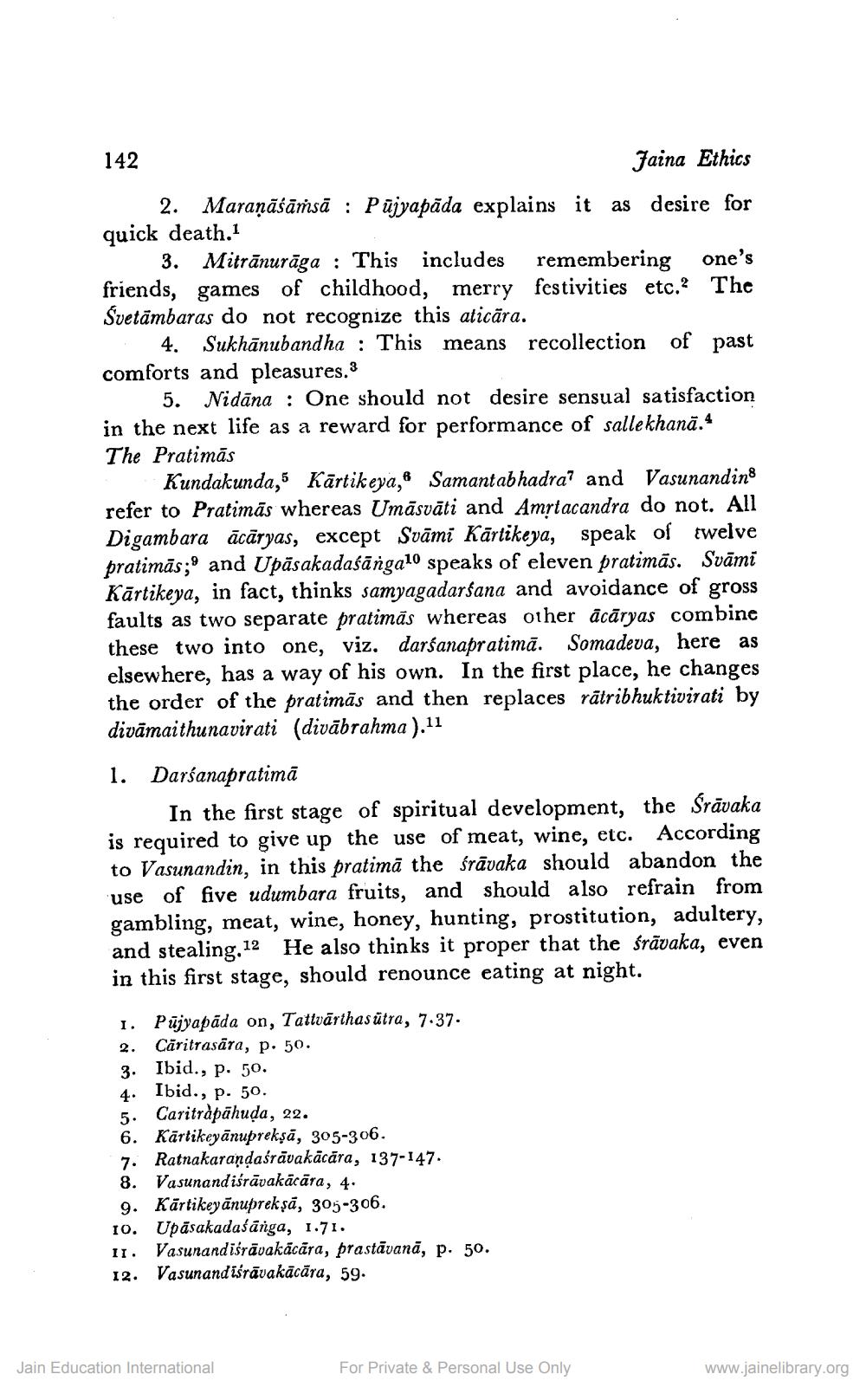________________
142
Jaina Ethics 2. Maraņāśāṁsā : Pūjyapāda explains it as desire for quick death.1
3. Mitrānurāga : This includes remembering one's friends, games of childhood, merry festivities etc. The Svetāmbaras do not recognize this aticāra.
4. Sukhānubandha : This means recollection of past comforts and pleasures.3
5. Nidāna : One should not desire sensual satisfaction in the next life as a reward for performance of sallekhanā. The Pratimās
Kundakunda,5 Kārtikeya, Samantabhadra? and Vasunanding refer to Pratimās whereas Umāsvāti and Amrtacandra do not. All Digambara ācāryas, except Svāmi Kārtikeya, speak of twelve pratimās;' and Upāsakadaśārgalo speaks of eleven pratimās. Svāmi Kārtikeya, in fact, thinks samyagadarśana and avoidance of gross faults as two separate pratimās whereas other ācāryas combine these two into one, viz. darśanapratimă. Somadeva, here as elsewhere, has a way of his own. In the first place, he changes the order of the pratimās and then replaces rātribhuktivirati by divāmaithunavirati (divābrahma).11
1. Darśanapratimā
In the first stage of spiritual development, the Srāvaka is required to give up the use of meat, wine, etc. According to Vasunandin, in this pratimā the śrāvaka should abandon the use of five udumbara fruits, and should also refrain from gambling, meat, wine, honey, hunting, prostitution, adultery, and stealing, 12 He also thinks it proper that the śrāvaka, even in this first stage, should renounce eating at night.
1. Pūjyapāda on, Tattvārthasütra, 7:37.
Caritrasāra, p. 50. 3. Ibid., p. 50. 4. Ibid., p. 50. 5. Caritràpāhuda, 22. 6. Kārtikeyānupreksā, 305-306. 7. Ratnakarandaśrāvakācāra, 137-147.
Vasunandiśrāvakācāra, 4. 9. Kārtikeyānuprekṣā, 305-306. 10. Upāsakadašānga, 1.71. II. Vasunandiśrāvakācāra, prastāvanā, p. 50. 12. Vasunand išrāvakācāra, 59.
Jain Education International
For Private & Personal Use Only
www.jainelibrary.org




